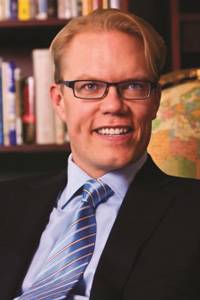 Leaders often fail to hold their team accountable. During research for our book, “Powerscore,” we found that only 8% of leaders are good at holding people accountable. One of the main reasons that leaders fail in this area is because when it’s done wrong, it makes things more difficult for everyone.
Leaders often fail to hold their team accountable. During research for our book, “Powerscore,” we found that only 8% of leaders are good at holding people accountable. One of the main reasons that leaders fail in this area is because when it’s done wrong, it makes things more difficult for everyone.
Here’s an example: I was giving a keynote speech at a Fortune conference a few years back and asked the audience, “How many of you have goals for your teams that are written down?” Only 10% raised their hands. Failure to write down goals opens up the door for confusion. It becomes nearly impossible to hold someone accountable for delivering a result when you have failed to articulate what you’re looking for.
In order to hold your team accountable, you need to be specific with goals and use numbers that others provide to measure performance. When I was still a young CEO with ghSMART, I struggled to hold a consultant accountable. She was brilliant and had great technical skills but failed to call clients proactively and didn’t follow up with them. Many clients did not ask for her to come back as their trusted advisor.
I called her into my office and told her that she needed to work on her client relationships. She disagreed and stated that her clients loved her work. I said, “Well, one client told me that although he values your work, he feels you treat him like ‘processed cheese’ and that you rush to finish projects with him, then you move on to your next client project.” She said that her work spoke for itself, and the meeting abruptly ended.
This was a huge failure on my part, as I failed to set specific, mutually agreed on goals and used vague wording. I talked about this with a mentor, and he said, “Make sure you have clear goals, in writing, so your consultants know what ‘great’ looks like. Then, have somebody other than you collect data on their performance. Then, you can sit down as a coach to review their results versus their goals.”
It was great advice that I immediately put into practice. When you properly hold people accountable, high performers will know they are performing, and they will keep doing what are doing. And lower performers will know they are not performing well, long before anybody has to sit them down to have a conversation.





